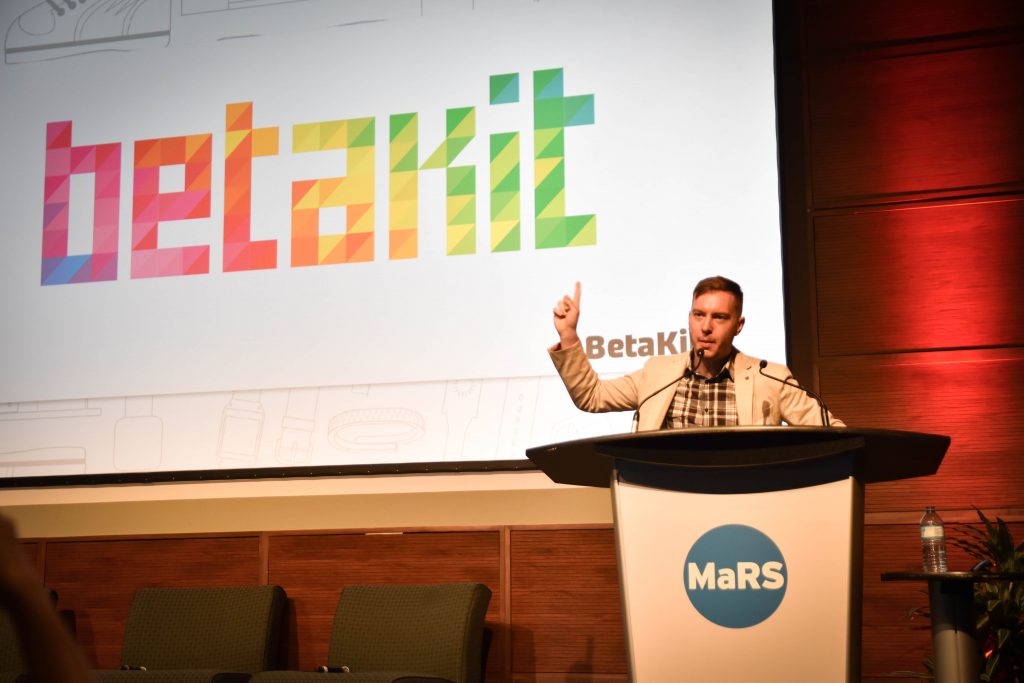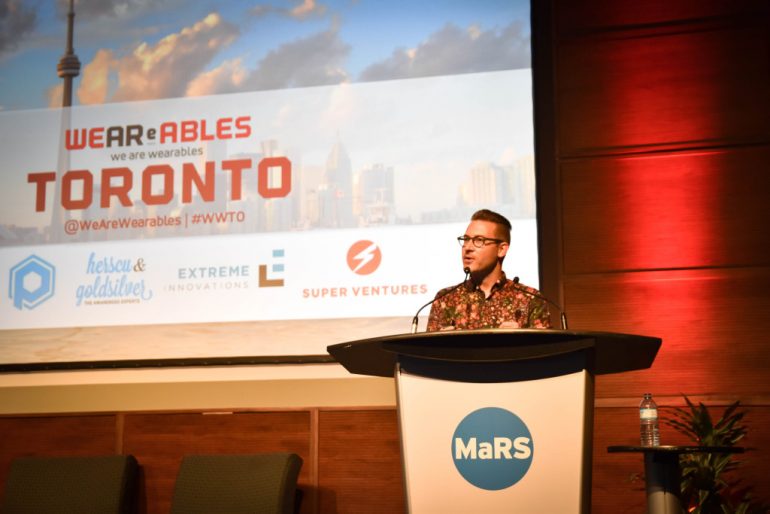With the last We Are Wearables taking place in January, July’s #WWTO was a fitting time for self-reflection — both for the event itself and the Canadian wearable scene overall. When founder Tom Emrich started We Are Wearables two years ago, he only had a box of wearables for a few enthusiasts and one featured wearable company — Kiwi. Since then, the event has grown to regularly attract at least 700 people to the MaRS Discovery District, expanded to Chicago and Ottawa, and over 100,000 social media followers.
“I think the key to survival as a startup is to be able to evolve.”
– Ali Nawab
For this WWTO, Emrich invited companies that the event has demoed in the past two and a half years, featuring talks from some of Toronto’s pioneering wearable tech companies. So it was fitting that Kiwi, which was the first company to be featured at Wearable Wednesdays, was the first company that Emrich sat down with to ask, “where are you now?”
“I think the key to survival as a startup is to be able to evolve and be cognizant of what’s going on and understand the market trends,” said Ali Nawab, founder and CEO of Kiwi, which develops software for gesture recognition. Initially, the company worked on an all-purpose hardware wearable — but with the Apple Watch on its way, the team decided that hardware would be a difficult path.
“We decided we didn’t want to be a B2C company,” Nawab said. “Initially when we started the company we had a really lofty goal, and we assumed that all the components we needed for our product, we could just buy them. But we quickly learned that either those components didn’t work or they worked very poorly.”

Like Nawab, Nymi founder and CTO Karl Martin also had to move away from a consumer focus, noting that as IoT is still developing, the world isn’t ready for a wearable like the original Nymi band. Instead, the company has now turned to enterprise. “When we got closer to being product-ready, we started self-reflection, and we realized that we’re pretty far away from actually being able to enable consumer experience around identity,” said Martin, who also noted that the company has secured partnerships with companies like Microsoft in preparation for an official Fall launch.
.@KarlTheMartian says Nymi is known as "the heartbeat company" but they're about "persistent authentication." Enterprise requires more #WWTO
— Douglas Tr0n Soltys (@tron) July 26, 2016

But the night wasn’t all about hardware pivots and challenges — InteraXon founder Ariel Garten, who recently stepped down as CEO, talked about how InteraXon got a clinical-grade EEG device to sell at a retail level. InteraXon, which sells its Muse headband at Best Buy, said the company’s “secret sauce” for success has been creating a device “so great that anyone — and their grandma — can use it.”
While there was a lot of hype around hardware when Emrich started WWTO two years ago, investors are now more cautiously optimistic when it comes to hardware investments. Speaking with BetaKit’s editor-in-chief Douglas Soltys, OMERS Ventures associate Prashant Matta said that there is a lot more hype around augmented reality and virtual reality, which provides some opportunity for hardware companies.
“What you see today is that the hardware-only story isn’t as compelling as it used to be, and we often see companies getting started in the space having a good view of how to keep customers engaged,” said Matta. “Hardware has almost become an entry point.”
Photos courtesy Amanda Cosco via Electric Runway


